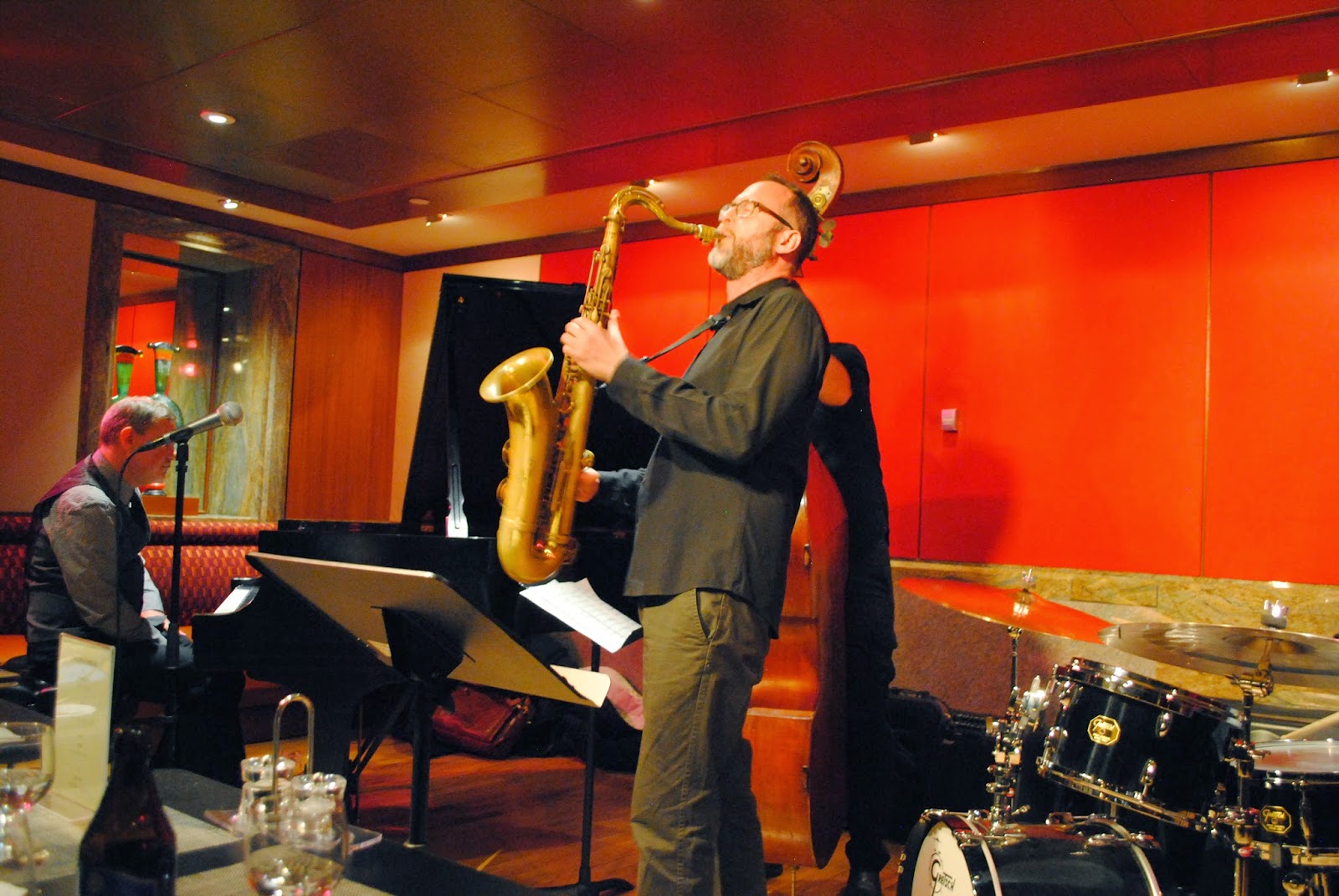 |
| Saxophonist Michael Blake with Frank Kimbrough on piano |
Saxophonist Michael (not Mike) Blake is one of those artists
who have a sustained appreciation of the tradition and for those who have come
before him. In 1984 while still in Canada he had an opportunity to work with
jazz stalwarts Cecil Taylor, Kenny Wheeler and Steve Coleman. The Canadian born
musician has been a New York resident since1987. Blake paid his dues backing
artist like Chubby Checker and organist “Brother” Jack McDuff among others. In 1990 Blake was catapulted into the eclectic
world of multi-disciplined artist John Lurie and joined Lurie’s Lounge Lizards, a critically acclaimed group
that included Lurie and his brother Evan, guitarists Marc Ribot and Dave
Tronzo, bassist Billy Martin and trumpeter Steven Bernstein. The group has
maintained a transient presence in the downtown New York music scene for over
twenty resurfacing occasionally for special occasions. Blake also became the
solo saxophone voice of the group Slow
Poke and worked extensively in his own groups and in groups led by the
progressive young bassist Ben Allison.
 |
| Michael Blake: Tiddy Boom Sunnyside SSC1396 |
Blake’s latest release Tiddy
Boom, is a reference to a phrase Blake once heard idol Lester Young call
out to a drummer on a film clip. Pres asked the drummer to give him “a little tickity boom, please.”
Blake proves that good, swinging music played in a style reminiscent of the old
masters like Young and Coleman Hawkins can be just as powerful and compelling
as it was when these iconic saxophonists were alive and wailing. Blake has
mastered that deep throaty voice on his instrument that was popular when these giants ruled the
bandstand. He plays with a legato sound that wrings the essence of a note out in a
sultry, lingering way. This lushness can be heard on such songs as the loping
“Skinny Dip,” and the rhumba inspired title song “Tiddy Boom,” “ A Good Day for
Pres” and the beautifully paced “Hawk’s Last Rhumba,” one of my favorite pieces
on the album for the resplendent sound Blake gets on his horn in homage to
Hawkins.
While the music is derivative
it is never copied and the group backing Blake is superb. Ben Allison’s plucky
bass lines strut majestically throughout and Rudy Royston’s tasteful cymbal
work and feathery brushes are a delight. Pianist Kimbrough subtly shines with
his piano accompaniment and he and Blake often have a sensitive interplay that is
palpable, especially on the boppish “Coastline.” Kimbrough’s solo on “Letters in
Disguise” is a swinging display of masterful keyboard work derivative but contemporary,
and Blake breaks loose with a solo that shows he too is not stuck in a time
warp.
The jaggedly modern “Boogaloop” let’s you know these guys have progressed
to a level of musical sophistication that has reached beyond their masters. The
last composition titled “The Ambassadors” is a musical declaration from Blake
and his cohorts that this music will always have its representation in the
repertoire and these young lions will be both respectful ambassadors of that
sound as well as creators of their own. There
is something here for everyone.
